Twin Peaks Mythology and Cooper’s Katabasis
This article was written in October 2017, when Twin Peaks Season 3 impressions were extremely fresh, the Internet was abuzz with various interpretations, and the author was feeling that there are too many people (at least on Russian web) who are overly fond of deciphering some would-be clues or overly accustomed to the language and notions of modern sci-fi pictures. This material builds upon the assumption that the creators of Twin Peaks (primarily implying Lynch) are employing dream logic rather than using some code—yet the author tries to make sense of this logic by drawing upon Buddhist, depth psychology and mythological worldview associations.
It went through some later edits, mainly stylistic; the author also drew juxtapositions with some works of his favorite Russian avant-garde poets (cut down to one Kharms’ poem here, translated with a helpful advice of Jenna Moran). Much to the author’s surprise, the article has enjoyed a certain popularity in Russian web. In the meantime a several fruitful and interesting interpretations have emerged, some of these seemingly close to the outlook of this article.
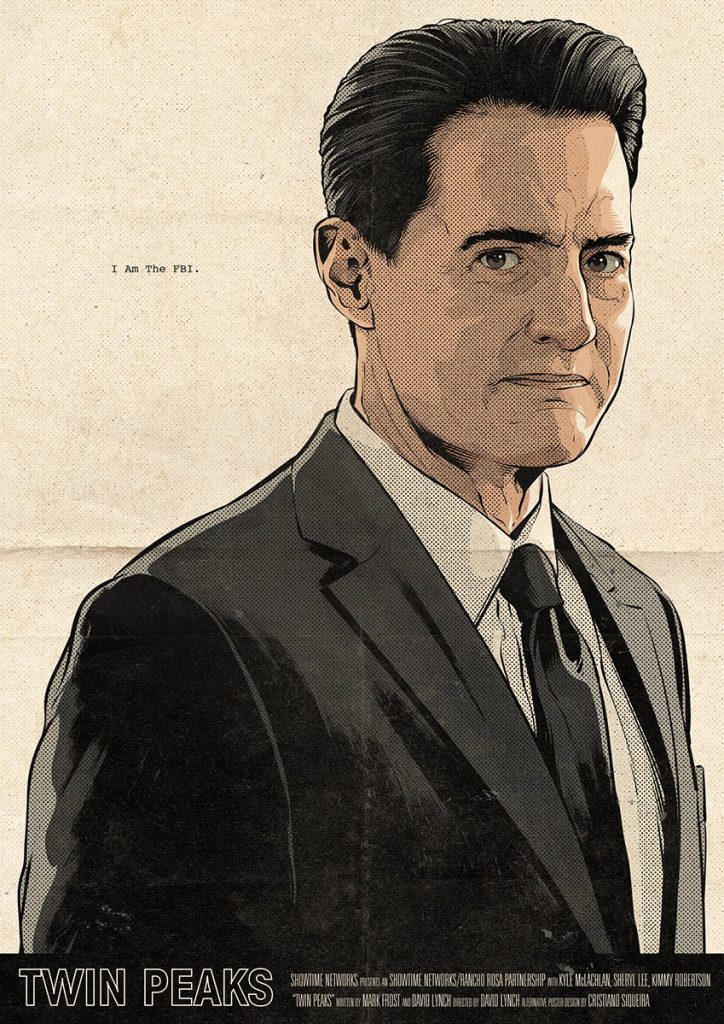
Twin Peaks Mythology and Cooper’s Katabasis
INTRODUCTION
I love stories, but I love stories that can hold abstractions, and cinema can say these too-difficult-to-say-in-words things.
—David Lynch
There are clues everywhere – all around us. But the puzzle maker is clever. The clues, although surrounding us, are somehow mistaken for something else. And the something else – the wrong interpretation of the clues – we call our world. Our world is a magical smoke screen. How should we interpret the happy song of the meadowlark, or the robust flavor of a wild strawberry?
—Log Lady, s02e20
What is this, kindergarten?
—Cooper’s Doppelgänger, s03e13
A new Twin Peaks season conclusion once again turned out to be a blast; but when it was just a dynamite blast like the one which put Audrey Horne in a coma a quarter of a century ago, now we’re talking a nuclear blast like the one in the legendary eighth episode. The сonfused audience desperately wishes to comprehend what’s happened — especially concerning the enigmatic finale. I was voicing some concern when there were a few episodes left to go (knowing I will feel shame for distrusting David Lynch later). What did I fear? Twists like a) everything turns out to be a dream/fantasy/hallucination; b) time travel shenanigans with timeline rewrites; c) aliens, military experiments etc. (obviously, courtesy of Frost); d) the infamous breaking of the fourth wall, “it’s time to remember this is a stage show for your entertainment, dear audience,” and all that jazz. Any such twist could have undermined the whole world of Twin Peaks — but everything turned out to be different.
Surprisingly enough, Lynch and Frost employed all of these gimmicks (except perhaps the UFOs) to a certain extent, but not in such a straightforward way. At least, they have left us with a wide range for interpretations. Aside from that, until the very finale I was missing out on a single component of «David Lynch encyclopedia» the third season became: that is, the same component which makes his LA Trilogy (Lost Highway, Mulholland Drive and Inland Empire) so exceptional. I’m talking about characters” personality shifts, incompatible realities, same faces with different names… Of course, the final episode gave me what I wanted in spades — the same final episode which became the most confusing if not disappointing for a lot of people.
I never regarded David Lynch as an author of intellectual movies that bring puzzles to be solved, preferring to approach his films with an open heart and ready intuition; this was more than enough for me. But Twin Peaks made me think hard about the reason Lynch’s films have this effect on people. Yes, Lynch performs on an emotional level in his «Theatre of Cruelty». Yes, he addresses the intuition. But one of the feelings he employs masterfully is a feeling of mystery and yearning to gain an understanding. Intuitively we feel that there’s some logic hidden behind all the events, based on some principles we do not understand but want to elucidate. With the new Twin Peaks this feeling goes off the charts, and everyone devises their own way to deal with it.
Is it even possible to find a proper interpretation, one that would feel acceptable enough? I think it’s indeed quite possible. What’s important though is to avoid a number of risky temptations. By asking what was the author smoking, exclaiming that the emperor has no clothes, stumbling around while trying to interpret what we saw with the aid of familiar tropes of sci-fi and mainstream movies (all these Beautiful Minds, Butterfly Effects and Matrixes) or seeing a tale of some otherwordly baddies that conspired to do some nasty things in the little town of Twin Peaks where «our guys» have kicked their butt but screwed up somehow we become like Jerry Horne who holds his binoculars the wrong way around, swears at the binoculars instead of himself, and ends up up somewhere over the hills and far away, naked, stoned and clueless.
All the fiddling with numbers and names in attempts to «decipher» something usually leads to a notion that Lynch has told some trivial everyday life story with a touch of mystical in it, just obfuscated it on purpose. Like what we have on our hands is some sort of Voynich manuscript that just needs a key showing it was a simple herbarium or a medical encyclopedia all along. It’s possible to pick out any number of such «keys» if desired, creating theories of varying degrees of ingenuity and drollness, but it would leave out something important. The resulting discontent can be easily blamed on «drawn-out pacing», «abrupt closure», «cliffhanger deal» — yet I think that is the same as swearing at the binoculars while holding it the wrong way around.
I’ll conclude the introduction by moving on to my attempts to interpret what I saw; however, I want to notify the readers of a thing or three. First, I emphatically do not think that Lynch was implying exactly what I have discovered there. Second, even if he did imply something similar, it’s not necessarily the case that he was consciously enunciating such concepts, let alone «enciphering» them. Third, I respect every individual attempt to uncover meaning and treat such attempts as collaborative works of art of sorts — even if the theories presented seem far-fetched, if not plainly silly. Thus, I do not intend to claim any truth or «superiority».
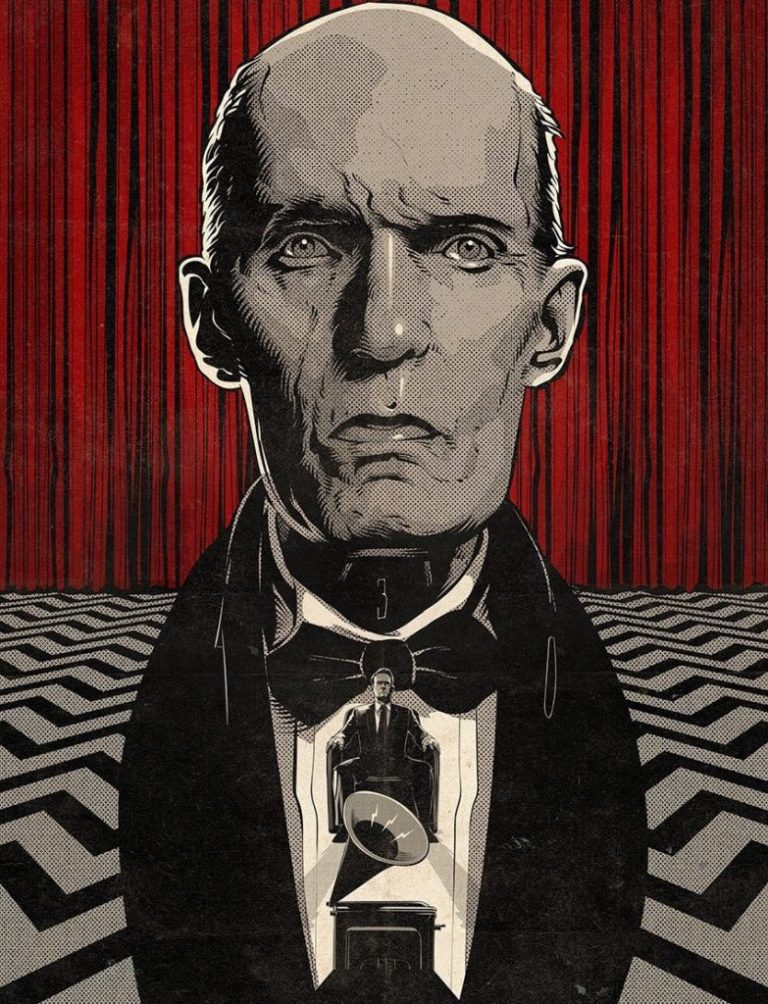
METAPHYSICS AND MYTH
Don’t search for all the answers at once.
A path is formed by laying one stone at a time.
— The Fireman, s02e01
Let’s start by turning the binoculars around and contemplating what Twin Peaks the series is and the changes that were occuring to this series, starting with the first season and ending with the third season’s finale. The first season is first and foremost a detective story with a mystical aspect. It did employ many genres and layers, but it was primarily a story about murder investigation that involved some unconventional means: prophetic dreams, meditations and so on. During the second season the series transformed into a supernatural show, with occult and mystical aspects taking the spotlight (barring the middle-season soap-opera stuff etc.).
Next comes the movie, Fire Walk With Me, where the story adopts dictinctly mythical aspects: namely, the imagery of Laura Palmer and the strange creatures dwelling inside the Black Lodge and the Convenience Store; various new locations and devices like the infamous ring. A mystery tale of Twin Peaks became a mystical legend, turning into a full-fledged modern myth by the third season: meaning not only that over the last 27 years this story has become one of the important elements of popular culture, but that the principles it is built upon — principles that govern its effect on the viewer — are very similar to the principles of mythic narratives. Lynch once tried to turn someone else’s myth (Frank Herbert’s Dune) into a film and failed; he excelled at creating his own myth in collaboration with Mark Frost, though.
If we regard the classic myths simply as fairytales, we are missing what’s most important. Myths are stories about evolution and development of the human spirit, about the journeys of the mind, about the obstacles upon the path, framed as legends and stories of the supernatural. Myths fascinate us exactly because they touch upon some strings buried deeply within our minds, remind us of things we always knew deep down in our hearts but have forgotten or were unable to recognize.
I think that all late David Lynch movies are made in such a manner. We feel that there is a certain depth, a certain importance behind the imagery: that’s the same effect as the effect of dreams, psychedelic trips or metaphysical art of Delvaux, Magritte, de Chirico. And it’s intriguing to try to perceive this story not «straight up», not even through the Freudian lens (at it still was possible with FWWM) but by employing the outlooks of the transpersonal psychology, Jungianism, Buddhism, shamanism and similar systems. When we try to approach it as a tale of various states and temptations of mind, of enlightenment and endarkenment, of sin and salvation, of Time, Death and Love, everything (or pretty much everything) falls into place. Let’s contemplate the main symbols of Twin Peaks accordingly.
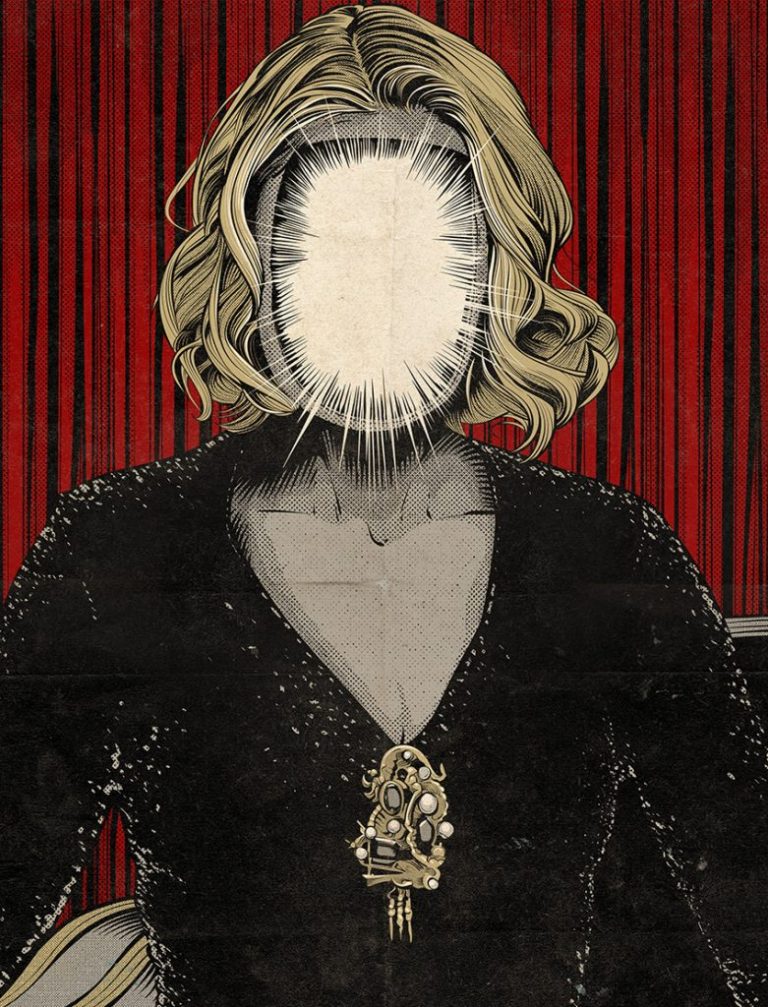
ELECTRICITY, FIRE, CORN
As above, so below. The human being finds himself, or herself, in the middle. There is as much space outside the human, proportionately, as inside. Stars, moons, and planets remind us of protons, neutrons, and electrons. Is there a bigger being walking with all the stars within? Does our thinking affect what goes on outside us, and what goes on inside us? I think it does. Where does creamed corn figure into the workings of the universe? What really is creamed corn? Is it a symbol for something else?
— Log Lady, s02e02
Electricity is probably Lynch’s main recurring motif ever since the Eraserhead. Everyone tends to agree that the electrical phenomena in his movies signify the presence of something mystical, the transitions between worlds, or, speaking more broadly, they are what esoteric systems call a «lifeforce», «emanation», «Universal mind» and so on. This clearly demonstrates the filmmaker’s characteristic artistic device: he conveys most abstract concepts and ideas with mundane, everyday imagery. His supernatural entities are nothing but hobos, cowboys, firemen and woodsmen; he represents transitions between various states of mind with elevators, film booths and theater corridors.
Some other director would have employed fractals or glowing orb visuals to show a transition between different reality layers, but Lynch uses common electricity: flickering light bulbs, crackling wires and shorted circuits. This also applies to the image of fire: Lynch employs a hottest metaphor, comparing intense emotions to fire (flaming passion, anger and so on), but makes that metaphor as literal as possible. Yes, Lynch’s fire is affects, states of an aroused mind, but this fire markedly reeks of scorched engine oil.
This was present in Eraserhead and Wild at Heart, migrated to Lost Higway and Mulholland Drive, yet only in Twin Peaks it developed into a full-on mythical system; probably thanks to Mark Frost who likes all sorts of occult concepts that seem to become a nice complement to Lynch’s visionary intuition. A perfect example of such synergy is an image of garmonbozia, «pain and sorrow», an essence of suffering shown as creamed corn. I suspect this is precisely the result of their joint efforts; in any case, this image proved to be very memorable.
In the first season Fire symbolism takes the spotlight: MIKE’s famous mantra, Fire Walk With Me; the smell of burnt oil… Electricity comes up almost accidentally: there was a malfunctioning blinking lamp during the shooting and Lynch asked to leave it as it was. During the early seasons creamed corn appears only once — in the second season, in one of the most important episodes where Donna confronts demonic Tremonds — and its meaning stays unclear or even unnoticed. Only in FWWM we learn of garmonbozia (and Lynch gets exceptionally blunt, adding a caption that explains it is «pain and sorrow»). Electricity-laden imagery also becomes installed into the series” mythology during that movie: a telegraph pole bearing the number 6, sparkling teleportation of agent Jeffries, camera being fixed on electrical outlets… The third season utilizes such symbols all the way through.
Thus, the central elements of Lynch’s mythical system are images that denote «all-pervasive energy of consciousness», «affects of the mind» and «suffering of the soul». That adds up to quite a Buddhist setting, right? All of this gets plainly told once again during the scene with Hawk’s «living map», and this interpretation doesn’t leave much doubt. But this outlook could also be successfully expanded by closely observing the Lodges and their dwellers, for instance.
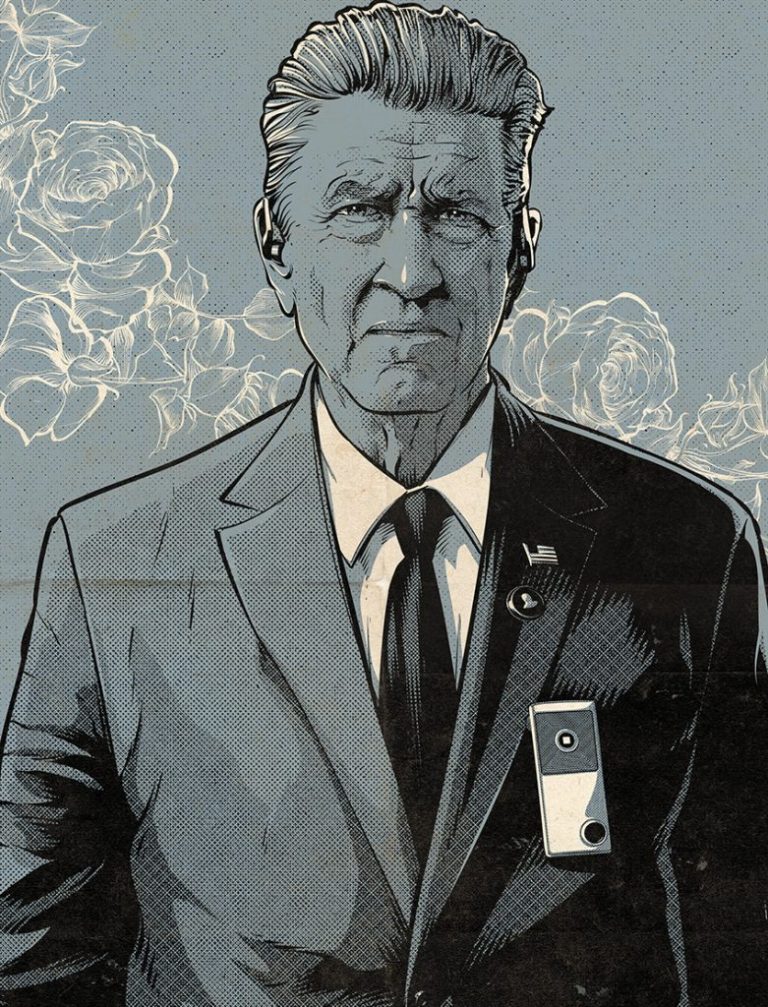
THE LODGES, MIKE, THE ARM, THE FIREMAN
My people believe that the White Lodge is a place where the spirits that rule man and nature reside. There is also a legend of a place called the Black Lodge. The shadow self of the White Lodge. Legend says that every spirit must pass through there on the way to perfection. There, you will meet your own shadow self. My people call it The Dweller on the Threshold. But it is said that if you confront the Black Lodge with imperfect courage, it will utterly annihilate your soul.
— Hawk, s02e11
The Lodge symbology is among the most profound and interesting. The metaphysical meaning of these spaces seen as states of mind again resonates with a Buddhist worldview.
The Black Lodge is a state of perceiving all the worlds as real. It is possible to step out of this space and into various places «in the flesh» through the red curtains. There the colors are vivid, it’s richly decorated with fine-looking statues and furniture, everything has very pronounced texture, can be felt. There all our fears and worries come alive, there, under the sycamore trees, we meet the embodiment of our Shadow. The Black Lodge is «an abyss of hallucinations», the chapel perilous, the space of deceit and illusory glamour.
The White Lodge is a state of perceiving all the worlds as illusory. Everything there is nominal, monochromatic, and those who enter the White Lodge see our reality and all the neighbouring worlds equally as a record, an illusion: a movie on the silver screen, a sound made by a record player…
There’s again the image of Fire; Hawk tells Fire becomes «good» or «evil» depending on the intent. Fire both brightens and burns things up, because fire, electricity is a nature of mind and when fire goes wild, our mind gets drowned and eclipsed by affects, we mistake illusions for reality and become absorbed by suffering and pain.
One-armed MIKE, the Black Lodge’s host, is probably the most enigmatic character of the whole mythology. One should not fully believe any of his words. Consider the story where he «cut the arm off when he saw the face of God» to avoid doing evil so now he is allegedly out to stop BOB. This he tells as far back as the first season. But in FWWM we see him «reunited» with his Arm, demanding his garmonbozia back from BOB, and his motives become much less clear. Then again, MIKE is a divided mind, lord of illusions, deceit, hallucinations. And «arm» stands not only for a body part, but for a tool. MIKE is an ambivalent one; he is cunning rather than evil. MIKE is an embodiment of our many-faced mind. He helps and he distracts, he makes and he destroys; he is who plays eternally. The Arm is our «false selves», egoistic motives, our selfishness, our ego that feeds upon suffering. MIKE’s Arm are the roles we cannot quit playing, the masks that fuse with our faces, covering the primordial light.
Over the past years the Arm has evolved into an electric tree, no less; that probably also applies to the dreams the Arm personifies. Isn’t that why Diane’s tulpa utters the Arm’s catchphrase, «Let’s rock», and the Arm repeats Audrey’s words about «the little girl who lived down the lane»? Isn’t that why what’s happening in Twin Peaks is sometimes undistinguishable from a dream: one day beautiful, another day horrible?
There are lots of beings aside from MIKE and his Arm in the Black Lodge: BOB, the spirit of Fire; doppelgangers; spirits of the deceased; basically, this is a crowded, noisy place. Conversely, in the White Lodge we meet only the Fireman and Señorita Dido. If the fire is a flame gone rogue, a mind that succumbed to the affects, the Fireman is a wellspring of the opposing state, the one who douses desires, the one who brings awareness and peace. Señorita Dido is an embodiment of cosmic love. Amidst the notional monochrome world of the White Lodge we see only one color, gold, a symbol that expresses itself. It’s the glow of love and sanity, the color of Laura Palmer’s soul, the color of an orb The Fireman used to bring Cooper back to life at the beginning of the second season. On the earthly plane, it’s the color of spades Dr. Jacobi offers for «Dig yourself out of the shit» (such is his brand of twopence Buddhism that nevertheless has brought happiness to at least one family.)
Moving on. A portal leading into the Black Lodge has the form of a puddle of scorched oil surrounded by 12 black sycamore trees that could be interpreted as a symbol of numerosity of various illusions (remember also the 12-candle circle set afire and extinguished by MIKE in the unabridged version of FWWM), but near a portal leading into the White Lodge that looks like a puddle of liquid gold we see only a single white sycamore. Pretty much anyone can enter the Black Lodge: even The Fireman can go down there, as we remember from the second season’s final episode. Only the pure souls like Cooper, Major Briggs or Andy are admitted to the White Lodge, though. What happened to Cooper’s doppelgänger there is a separate topic which we’ll discuss further. What’s more, the Fireman’s abode stands atop a giant rock amidst a boundless ocean with something that looks like a blurry image of an eye above this ocean; I don’t think I should even comment on that.
The infamous Owl Cave Ring worn on «the spiritual finger» (the ring finger of the left hand) is a branch of the Black Lodge in one particular soul. It allows one to travel straight into corridors of devious illusions decorated by the red curtains — or to let MIKE and his Arm dominate one’s mind. The same finger, now charred, we see on the ghoulish hand inside Sarah Palmer as she open her face, and this tells us something about the state she’s in.
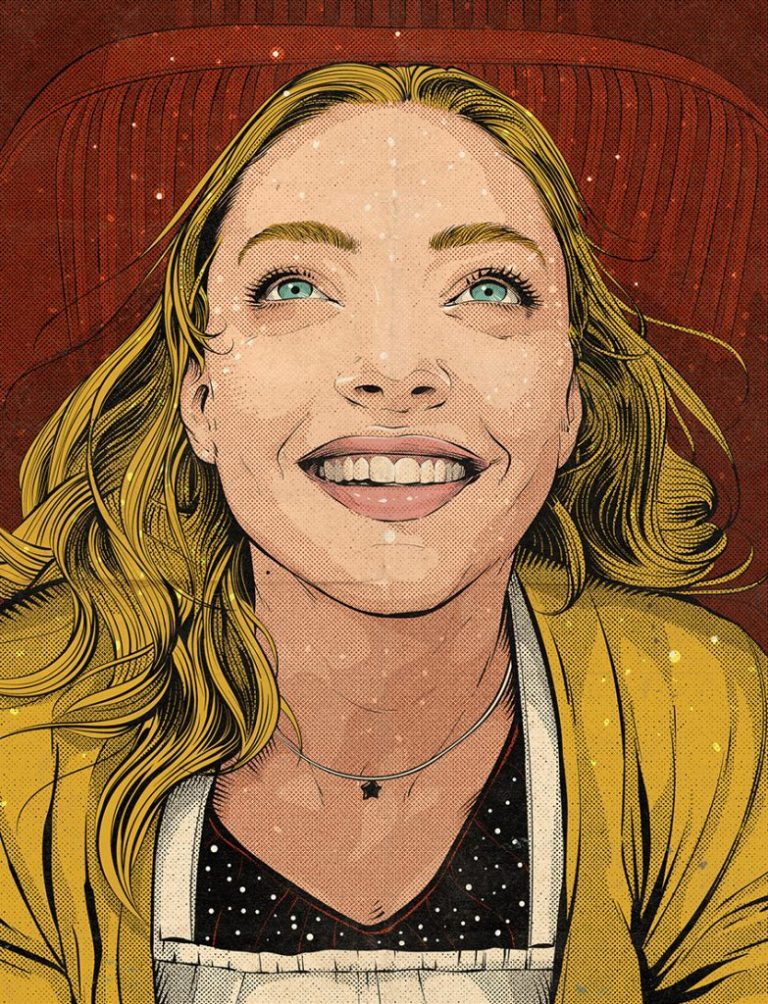
JUDY
Well now, I’m not gonna talk about Judy. In fact, we’re not gonna talk about Judy at all, we’re gonna keep her out of it.
— Phillip Jeffries, FWWM
Before he disappeared, Major Briggs shared with me & Cooper his discovery of an entity, an extreme negative force called in olden times Jowday. Over time, it’s become «Judy».
— Gordon Cole, s03e17
In the third season of Twin Peaks the chief evil is something known as Judy rather than the illusions of the Black Lodge and the spirits like BOB that belong to it: something long since familiar to Blue Rose agents, something the Doppelgänger seeks. Lynch does not complicate the imagery concerning Judy; he somewhat plainly tells us what Judy is. Gordon Cole tells that it is an «extreme negative force», Margaret Lanterman tells that «this you should be afraid above all», Hawk says that Sheriff Frank «don’t ever want to know about that». The Doppelgänger shows us a card that symbolizes Judy, and this card is an ace of spades. A famous symbol, isn’t it? So instead of beating around the bush, we’ll state it outright.
Judy is Death. Or Oblivion. Or Enthropy; or the destructive aspect of Time, Chronos, the eater of life. Spiritual death, triumph of the cogwheel world, of the decay. Cancer, corrosion, corruption… When Doppelgänger asks Jeffries «what Judy is», Jeffries tells him he has already met Judy; which is not a lie, as shortly before that Dark Coop got shot by Ray and was dead for a while until the woodsmen resurrected him. Furthermore, Jeffries suggests the doppelgänger to communicate with Judy in person, giving him the requisite coordinates; and once again he’s totally honest, for the Doppelgänger would have certainly died there if he wasn’t so smart to send Richard Horne in his place.
Now it’s about time to remember the concept of «two worlds» that pervaded the whole Twin Peaks mythology from the very beginning. As Jeffries shows Cooper in the final episode, two worlds are two sides of the same Moebius strip, and Judy’s world is the shadow side of our reality, so to speak. It could be said that these worlds are a living world and a cogwheel world, an animate world and a meaningless world. Infernal entities — BOB, the Arm, the woodsmen and so on — creep into our world because there is no food for them in their world; and this is hardly a new idea, as we’ve seen it earlier, for instance, in Burroughs” novels with the viruslike parasitic beings that can exist only by feeding off human suffering and pain, acting «on their behalf» and adding to the evil that’s already there.
This is «the black corn» seen on Hawk’s map, «an inverse fertility» that is like a cancerous tumor or a virus. Life-devouring enthropy, routinely reproduced evil, grief and despair that turn soul into a dried husk. The Kabbalah calls it «qliphoth», literally «husk», a shadow of the Tree of Life. Cue the scene in the opening episode of the third season where the shadow of this «extreme negative force» caught in a glass cube minces a loving couple into meat. It is not unexpected that Lynch chooses the first atomic bomb test as the most powerful representation of Judy, of the triumph of a mechanistic nightmare over life. As is commonly known, at this historical moment the head of the nuclear program, Oppenheimer, remembered the famous line from the Bhagavad Gita: «Now I am become Death, the destroyer of worlds.» (Translator’s side note: the line is reported to be a mistranslation of the original which speaks about Time that holds everything inside of it; after all, death is not exactly Vishnu’s domain.)
Electric poles with number 6 on them are, in turn, Judy’s «tendrils» of sorts reaching into our world. That is demonstrated in a scene where Richard Horne hits a boy with a car and the old Carl Rodd sees how the kid’s soul is being devoured through the wires. The same pole appears during FWWM in a town named Deer Meadow at a place formerly occupied by Carl’s trailer park, which is also where agent Desmond has disappeared. In a scene where Phillip Jeffries appears and vanishes at the FBI office in Philadelphia we see a similar pole again after Jeffries tells of the discovery he made «at Judy’s» and his witnessing of the meeting above the convenience store.
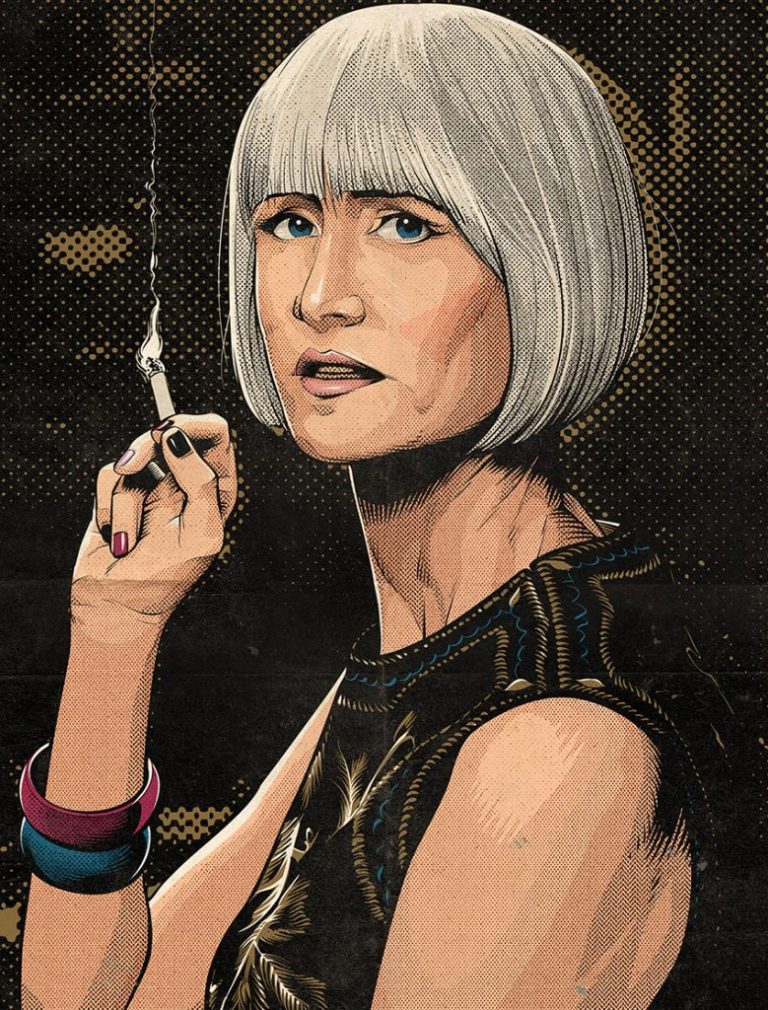
BOB, THE JUMPING MAN, THE WOODSMEN
Maybe that’s all BOB is. The evil that men do. Maybe it doesn’t matter what we call it.
— Albert Rosenfield, s02e16
As the night wind blows, the boughs move to and fro; the rustling, the magic rustling that brings on the dark dream. The dream of suffering and pain; pain for the victim, pain for the inflicter of pain – a circle of pain, a circle of suffering. Woe to ones who behold the pale horse.
— Log Lady, s02e07
Parasitic beings that dwell inside the Black Lodge, Death’s spawn and servants, are varied, just as varied are the diseases that plague human soul. Lynch presents us with a modern take on classic myths where various demons embody various states of mind. We know that BOB is a spirit of rage and lust that brings forth suffering and pain the Arm and the other dwellers of the Lodge feed upon. We see another spirit called Jumping Man in FWWM and two of the third season episodes, and there is a number of reasons to believe that the Frogmoth we saw in the 8th episode of the third season is the Jumping Man larva possessing poor Sarah Palmer. In a documentary titled Moving through Time: FWWM Memories Lynch calls the Jumping Man «talisman come to life».. Where BOB is destruction directed at the others, the Jumping Man is self-destruction, an embodiment of despair, grief, traumas that devour souls from within.
Sarah Palmer is the most striking representation of this state: disconsolate mother shorn of everything, living a vegetable life, drinking and smoking non-stop, caught in a time loop (note the boxing match on the TV, for example), dying alive. The notorious fan in her house is just another loop metaphor. It’s no accident that when the Jumping Man appears during one of the third season episodes his face gets juxtaposed with Sarah’s face. As she opens her face during the creepy scene at the bar, amidst the darkness that fills her we can clearly see Frogmoth’s stinger (also the Jumping Man’s nose).
It’s very powerful and very morbid imagery. The nuclear blast, as an embodiment of mindless Death force that resides in people, widened the rift between the worlds. And Judy’s spawn — BOB and the Jumping Man, Anger and Despair — took hold of human souls. In this particular case, souls of Leland and Sarah Palmer, but following the year 1945 the same was happening all over the civilized world. Alongside these creatures upon the Earth descent the black Woodsmen: charred spirits devoid of their own light who ask the living for a light and crush their skulls, bearers of fear and ruin that make whole cities fall into a slumber, a dreamless sleep. Water in the well mentioned in a Woodsman’s poem is a human soul these beings want to drink to the last drop, descending into our world from their shadow world like a pale horse from Revelations ridden by the one named Death.
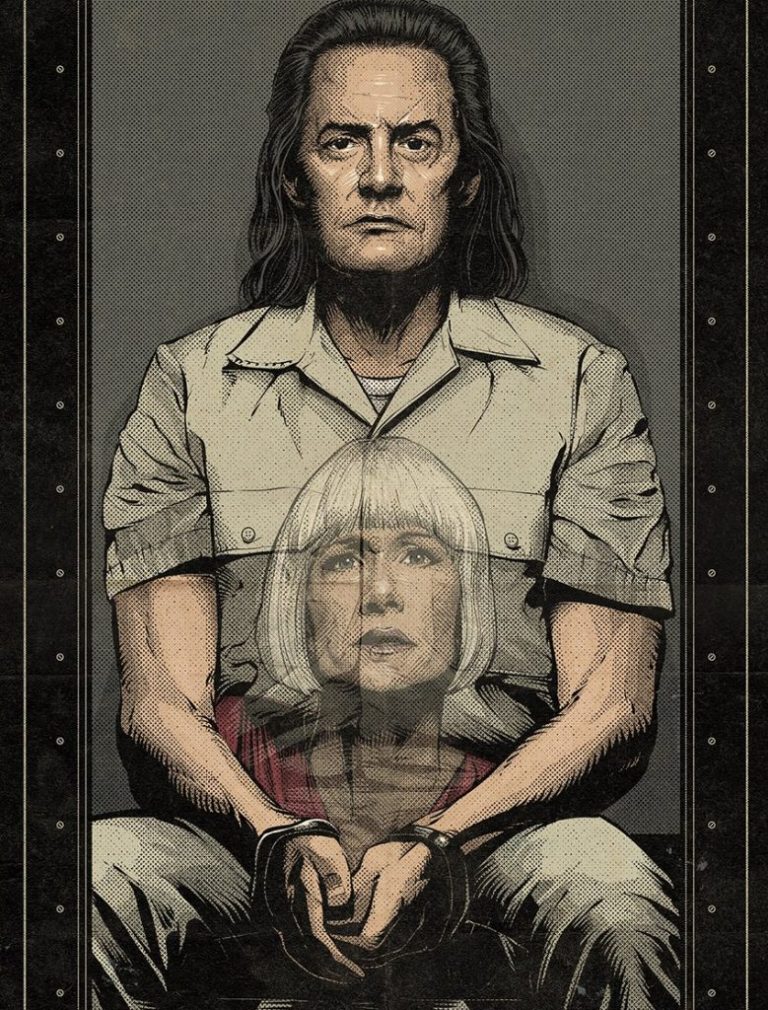
CONVENIENCE STORE, TREMONDS, RED
We lived among the people… I think you say, convenience store?
We lived above it. I mean it like it is, like it sounds.
— MIKE, s01e02
You stole the corn! I had it canned over the store!
— MIKE, FWWM
So, there is a world of living and a world of shadows and there are spirits travelling between these worlds. The infamous Convenience Store with a pair of old gas pumps is a twilight zone, a portal between these sides of reality. We remember from the first season that MIKE and BOB used to live «above the convenience store», and in FWWM Phillip Jeffries tells us how he witnessed one of the meetings held at that place. In the corresponding scene we are shown an entire band of malign beings: the Arm, BOB, the Jumping Man, two Woodsmen, Mrs.Tremond (a.k.a. Chalfont) and her grandson sit around the table with garmonbozia on their plates. The words these creatures utter deserve a special mention (it must be noted that in the original FWWM screenplay there were more lines and these lines were more extensive). Here is the unabridged screenplay; lines that didn’t make it into the movie are designated by bold italics. Man from Another Place gets occasionally labeled as MIKE in the screenplay.
MAN FROM ANOTHER PLACE: The chrome reflects our image
ELECTRICIAN: Electricity
TMFAP (FIRST WOODSMEN): From pure air, we have descended, from pure air.
TMFAP: Going up and down. Intercourse between the two worlds.
BOB: Light of new discoveries.
MRS. TREMOND: Why not be composed of materials and combinations of atoms?
MRS. TREMOND’S GRANDSON: This is no accident.
ELECTRICIAN: Animal life
TMFAP: Garmonbozia. This is a formica table. Green is its color.
FIRST WOODSMAN Our world.
TMFAP: With chrome. Any everything will proceed cyclically.
SECOND WOODSMAN: Boneless.
TMFAP: Yes, find the middle place.
BOB: I HAVE THE FURY OF MY OWN MOMENTUM.!
TREMOND’S GRANDSON: Fell a victim.
TMFAP: With this ring, I thee wed
BOB (Bob claps his hand and a circle of fire appears in the room.): Fire, walk with me
THROUGH THE CIRCLE We see the RED ROOM. ON THE SCENE Bob crawls into the Red Room and Mike starts to yell and leaps in after him.
SECOND WOODSMAN Thus time moves on.
A brief background on this mythology: Mark Frost with his preoccupation with occultism has played a large role in devising it. In one of the interviews he said that he was responsible for nearly the whole of mythology of the early seasons of Twin Peaks; among his sources of inspiration were Dion Fortune’s Psychic Self-Defence (from this book, according to him, came the original idea of the Black Lodge), Helena Blavatsky’s Theosophy (several phrases from the dialogue quoted above are almost word-for-word citations from The Secret Doctrine, like BOB’s famous line about «the fury of my own momentum» and MIKE’s «going up and down; intercourse between the two worlds») and Talbot Mundy’s Theosophy-based novel titled The Devil’s Guard (1926) which has enriched TP mythology with Windom Earle’s dugpa rhetoric. Then again, Frost also said that they imbued all these symbols with their own meanings and looking for any answers in these books is a waste of time. In any case, the screenplay of FWWM was written by Lynch (and Bob Engels) without Frost, and even if he did utilize some of the old collaborative concepts it seems he was increasingly imbuing these with his own meanings.
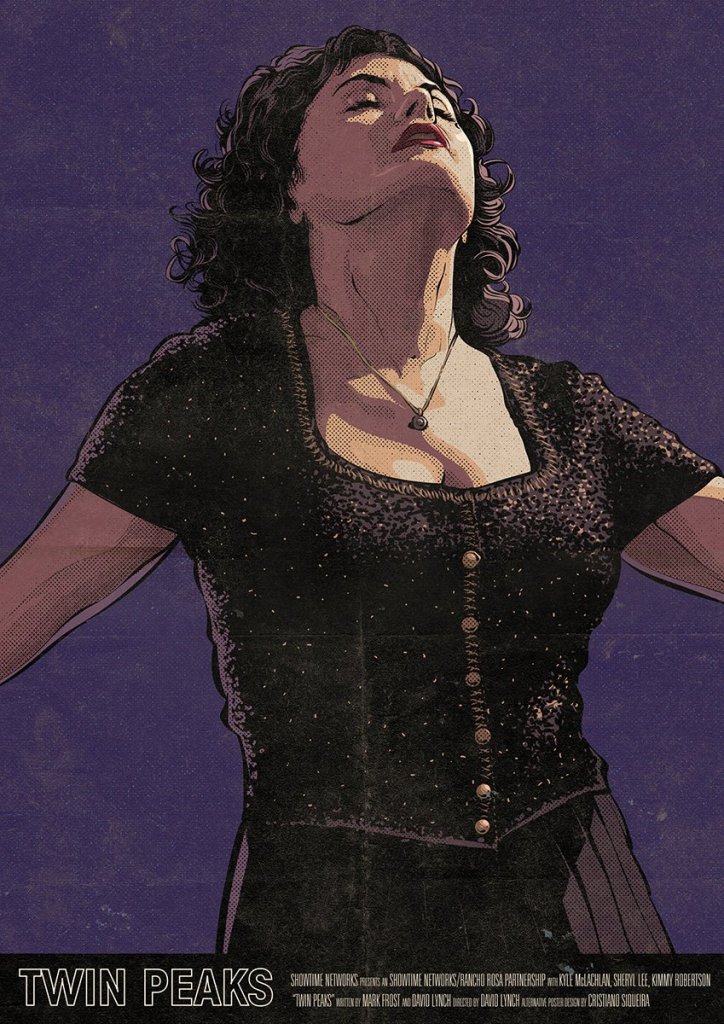
So on a narrative level the convenience store is a portal between our world and its shadow side. On a symbolic level it’s an excellent metaphor of a structure of the human soul. A relocating Convenience Store suspended between life and death where canned suffering and pain is stored, with a room above it where hungry spirits of selfishness, anger, fear and despair split their food as the wind howls, giving birth to illusions and nightmares. Gloomy corridors above the store with faded floral wallpapers (where Laura wanders during FWWM and the Doppelgänger wanders during the third season) come with visions of a thick forest, a symbol of the unconscious.
What other images are associated with this store? The Dutchman’s Lodge «above» it where Phillip Jeffries dwells: a part of the Underworld linked directly to a portal in the world of the living; the harbor for lost souls. Association with the Flying Dutchman, a ghost ship lost midway between life and death, is hardly random. The charred woodsmen, then, are the ship’s undead crew of sorts.
The Jumping Man, whom we discussed earlier, appears only in this store and the spaces related to it; isn’t that because he’s an embodiment of suicidal drives, these states of the soul that turn people into corpses while they’re still alive, as shown by the example of poor Sarah?
Another important characters are a grandmother and her grandson, known in the second season as Tremonds and in FWWM as Chalfonts (and both these surnames appear again near the third season’s finale; we’ll elaborate on that later). Everything we know about them suggests that they are heralds of coming death, personifications of malediction and doom. When Donna encounters them, Pierre Tremond shows her a magic trick: snaps fingers, saying «Sometimes things can happen just like this», making creamed corn appear in his hands. «My grandson studying magic», says Mrs. Tremond and tells Donna she should visit Harold Smith. Her grandson says: «I am a lonely soul.»; Donna («very cute girl», as he says) leaves and after four days of conversations with her Harold Smith hangs himself, leaving a note that says: «I am a lonely soul».
In FWWM these two live as Chalfonts at the trailer park, near to Teresa Banks — shortly before her murder. And a week before Laura Palmer’s death they hand Laura a painting (which, as we know, depicts labyrinthine spaces above the convenience store and acts as a portal), saying that «эThis would look nice on your wall». In some scenes during FWWM Pierre Tremond wears a mask and carries a slingshot which makes him look like the Jumping Man; he imitates the Jumping Man’s movements. It’s quite obvious what kind of magic he’s learning: it’s black magic, art of manipulating people into self-destruction and death. In the Secret Diary Laura Palmer mentions another event: as she was walking from Harold Smith, Pierre Tremond approached her, pulled a coin out of her ear and ran off. We can also recall one more mysterious character from the third season: Red, played by Balthazar Getty.
We see him only three times. The first time he is talking to Jean-Michel Renault at the Roadhouse and upon noticing Shelly makes a gun gesture. The second time is a strange scene with him and Richard Horne which lets us learn that Red seems to be the one responsible for the nightmarish drug epidemic that hit Twin Peaks. During the same scene Red shows Horne a magic trick with a coin: «Heads i win, tails you lose ». The last time we see Red in episode 11, where he appears during the conversation between Bobby, Shelly and Becky, and Shelly looks fully captivated by his charm. And right after Red disappears, all hell breaks loose. Many people assumed that Red is a grown-up Pierre Tremond. This seems quite plausible and even if that is not so, Red’s connection to the sad state of the town’s affairs and to the infernal powers is quite obvious. All his behaviour tells his element is manipulation, pushing people onto a track leading towards cogwheel existence, towards death.
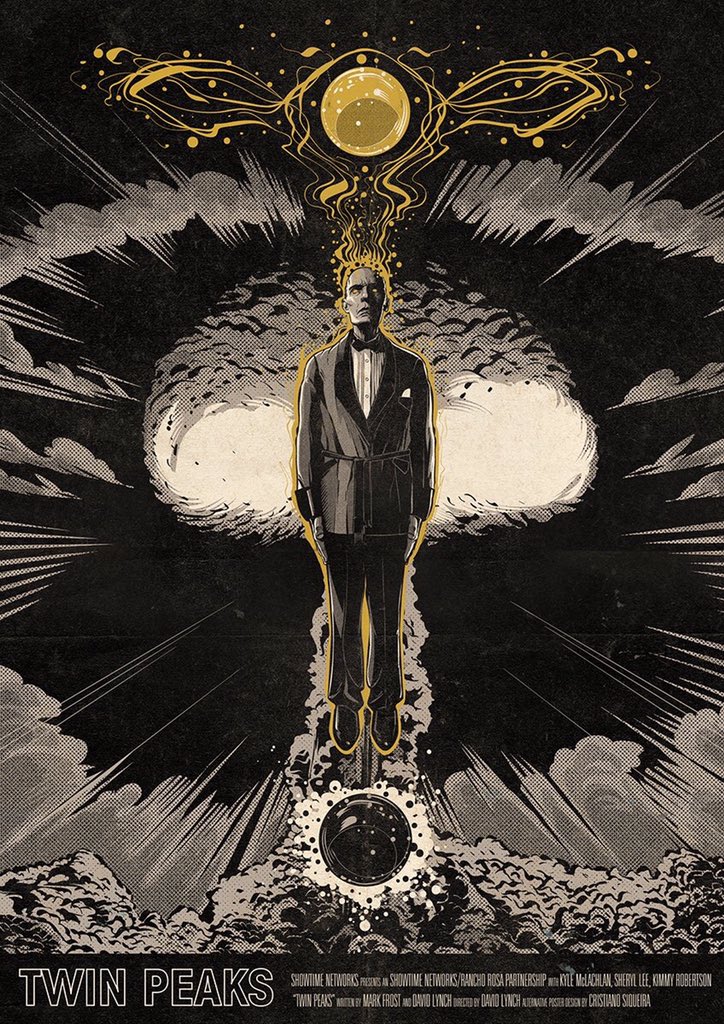
SHADOW OVER TWIN PEAKS
Hawk, electricity is humming. You hear it in the mountains and rivers. You see it dance among the seas and stars, and glowing around the moon. But in these days, the glow is dying. What will be in the darkness that remains ? The Truman brothers are both «true men». They are your brothers, and the others, the good ones who have been with you. Now the circle is almost complete. Watch and listen to the dream of time and space. It all comes out now, flowing like a river. That which is and is not. Hawk, Laura is the one.
— Log Lady, s03e10
Watch for that one. The one I told you about.
The one under the moon on Blue Pine Mountain.
— Log Lady, s03e15
Now it’s the time to view all what’s happening in formerly very homelike little town. Twin Peaks was a place harboring dark secrets 25 years ago, but now there’s something really horrible going on.
Shelly repeats the mistakes of her youth. Her daughter Becky ups the ante by reproducing the most awful details of both her parents” pasts. Sarah Palmer stays in a very ugly state, literally spinning in a loop of despair, going all out on vodka and cigarettes, with an infernal presence taken hold of her soul («It’s a goddamn bad story, isn’t it, Hawk?») Audrey has sunk into a swamp of nightmare she cannot manage to get out of. James and Ed are a bit more lucky to stay as we left them a quarter of a century ago; that’s hardly an enviable fate though. As for the «old-timers», there aren’t many who managed to keep their inner light undimmed. There’s Margaret Lanterman, dying, but wise and kind, and Carl Rodd, almost saintly old man tired of seeing people giving blood for food. There’s the law enforcement crowd: Hawk, Truman brothers, Lucy and Andy. There’s Bobby Briggs who took their side, one of the most positive characters of the new twin Peaks: he clearly mended his ways like Ben Horne. Then there’s a rat, Chad, amongst the policemen. Town’s youth is addicted en masse to drugs that turn them into literal walking dead, all thanks to Red and his emissaries such as Richard Horne.
It’s as if the whole town is sinking in a moat, time turns to slime, human behavior gets machinelike, and Lynch shows it to us in various ways: just rewatch the scene of the shootout Bobby got into right after smiling Red’s appearance. Old lady in the car honks again and again like a broken device, rotting chap in jail repeats his phrases like an automaton, a boy who shot a gun behaves like a creepy robot. Drug addict Steven rushes towards suicide as if along the rails, and Donna’s kind and compassionate younger sister can’t help him at all. Beatiful music plays at the Roadhouse, but another of the Renault brothers (naturally, a human trafficker) emerges as if out of thin air, and scumbag Horne’s actions far outmatch those of the detestable Leo Johnson… Even the famous cherry pies face the threat of dissipation due to business arrangements Norma’s present-day partner offers. Norma, however, remains wise and makes a right decision. Seemingly mad Dr. Jacobi and his admirer Nadine are in fact also trying to fight in their own way; but even a hundred golden spades seems not enough to dig the town out of trouble.
It’s as if the little town is being devoured by death and enthropy, corruption and corrosion. Evil was always lurking in the woods near Twin Peaks, reflecting in the souls of the townsfolk, but the events of a quarter of a century ago, left without proper resolution, have brought a curse upon the town and the light may go out forever.
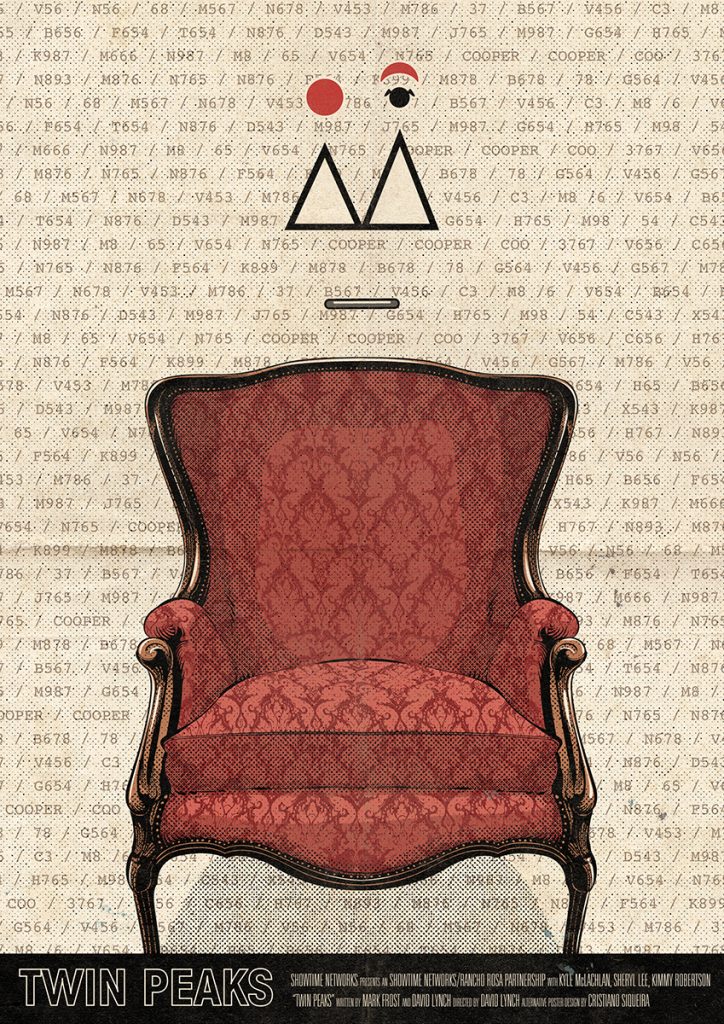
LAURA IS THE ONE
There is a story behind that. There are many stories in Twin Peaks. Some of them are sad, some funny. Some of them are stories of madness, of violence. Some are ordinary. Yet they all have about them a sense of mystery – the mystery of life.
Sometimes, the mystery of death. The mystery of the woods. The woods surrounding Twin Peaks.
To introduce this story, let me just say it encompasses the all – it is beyond the «fire», though few would know that meaning. It is a story of many, but begins with one – and I knew her. The one leading to the many is Laura Palmer. Laura is the one.
— Log Lady, s01e01 (pilot).
Albert Rosenfield once noted that wild lifestyle, alcohol and drugs were characteristic for the half of American schoolgirls. But there are many hints at the fact that Laura wasn’t just another schoolgirl, and in the 8th episode of the third season it is made so obvious that some people will probably even deem it overt. Laura Palmer is the symbolic soul of Twin Peaks that embodies both everything good and everything bad in this town. One who helps everyone out by day and gets devoured by darkness at night. A girl with a big heart and a keen mind with parents who turned out to be hosts to the darkest urges and destroyed her life. A messenger sent by the White Lodge to oppose Anger and Despair and make Death itself avert its gaze, an apparent redeemer of all the sins of the residents of Twin Peaks, she is The One, the linchpin of the town’s fate. Those who remember her, those who, like Bobby Briggs, cannot hold back tears looking at her portrait which now looks more like a sacred image are still able to take a stand against evil. But there are people who have never even heard of her.
Lynch shows us how her life’s journey ends in FWWM. She is quite literally beset by the forces of evil and everyone has their own designs on her: Tremonds palmed a painting on her, BOB in Leland’s body violates her, moreover, wants to posses her and «taste thru her mouth», MIKE needs her pain and sorrow. Her mother goes mad, her friends and boyfriends do not understand or see her tragedy, only Harold Smith, «lonely soul», is able to hear her out, but in essence «your Laura is gone». Laura, the messenger of the White Lodge, perishes in evil’s clutches. The final movement opens with a scene in a forest where she’s talking with James, her spirit already broken. Its end begins in a train car where she puts on the ring thrown inside by MIKE. Then she gets killed by BOB, her body gets discovered by Pete Martell, pain and sorrow BOB extracted from her becomes food for the Black Lodge, and as the Arm, the little man, starts to gulp down garmonbozia, the mysterious monkey behind Pierre’s mask utters the name Judy.
Then FBI agents Dale Cooper, Albert Rosenfield and Gordon Cole come to Twin Peaks, followed by Windom Earle, who has defected to evil. Cooper and Earle get lost in the Black Lodge: Earle vanishes forever, Cooper vanishes for 25 years — yet manages to drop a hint to Gordon about his plans to «kill two birds with one stone» before vanishing. And as «The good Dale is in the Lodge, and he can’t leave» and his dark doppelgänger runs free, the town sinks deeper and deeper into the depths of evil.
Laura Palmer is a personification of the whole town of Twin Peaks. With her dreadful death the balance has shifted towards darkness, and in a quarter of a century the town has almost completely succumbed to the shadow. That is why there is no homely atmosphere many viewers miss so much. That is why there is a lack of beautiful music everywhere except the Roadhouse which increasingly resembles some border area ruled by the Arm. The fall began with Laura’s death and she’s also the only one to bring about the end to this horror. The circle completes 2 October at 2:53 when Blue Rose agents return to Twin Peaks and Cooper’s dark twin goes back to the Lodge — and when one other important event is bound to occur.
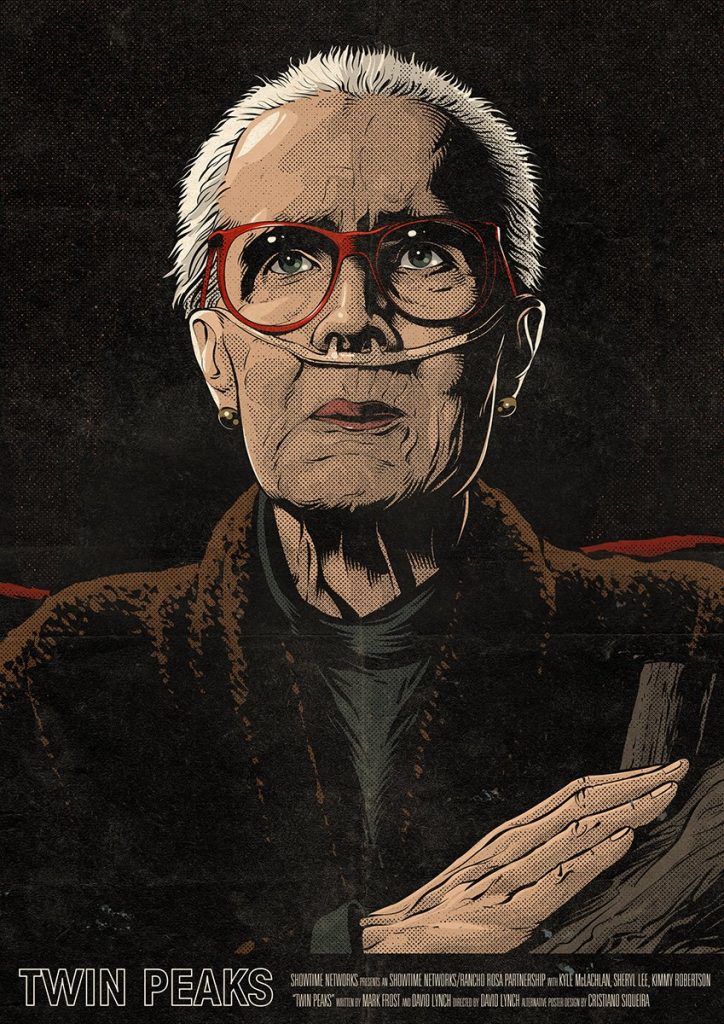
BLUE ROSE AGENTS
Albert, I hate to admit this, but I don’t understand this situation at all.
— Gordon Cole, s03e04
…The absurd mystery of the strange forces of existence.
— Albert Rosenfield, s03e03
Whoa! They are real!
— Tammy Preston, s03e16
Albert’s path is a strange and difficult one
— Dale Cooper, s02e03
We live inside a dream!
— Phillip Jeffries, FWWM
FBI Task Force «Blue Rose»: they are the only hope now. All the members of this group seem to be a bunch of freaks, yet in reality they are the few people who understand what’s going on. To some extent. In terms of Twin Peaks mythology they are «the initiated», or, as some reviewer put it, transcendental security agents, each interacting with the truth revealed to them in their own way. Their path is a dangerous one. One might get stuck in otherwordly spaces like Jeffries and Cooper. Or disappear forever without a trace like Chester Desmond. And this isn’t the most terrible outcome, as one might get on the path of serving evil like Windom Earle. Avoiding such temptations is the hardest of all.
In fact, Blue Rose is a more advanced analogue of Twin Peaks” «bookhouse» (a group of the initiated, apparently started by none other than Carl Rodd. Tommy «Hawk» Hill, sheriff Harry and his brother Frank, Big Ed; all these people are on guard for good). Wise major Garland Briggs, whose biggest fear is «the possibility that love is not enough», also plays a crucial role there. He is the connection Twin Peaks has to the FBI supernatural task force, and he is also, as a matter of fact, a member of Blue Rose; it is explicitly shown to us at the beginning and the end of the third season. His listening post was situated on the same mountain that acts as a portal Judy’s forces come through, he offered the most valuable keys and he has become a new resident of the White Lodge which he visited during his lifetime. Paths of the other agents — those who did not fall victim to Evil — are unique; each one of them has their own destiny.
Albert’s path, as we remember from the earlier seasons, is love; the way he sees it always makes his colleagues apologize, though. On the other hand, his sceptical outlook allows him to be firmly grounded in this reality; no wonder he is the sole member of the group who did not disappear under mysterious circumstances.
Well, not counting Gordon Cole whose path might be characterised by the famous phrase: «joyful participation in the sorrows of the world». Cole, more knowledgeable than all the others, wise and experienced, doesn’t hesitate to take part in the simple joys of life or to playfully pull pranks on his colleagues, like a sly Zen master.
New recruit Tammy is a textbook «diligent student» Phillip Jeffries might have been until the search of mysterious Judy has led him to the place he now dwells in. Come to think of it, where exactly does he dwell? He’s somewhere between the world of the living and the world of the dead, outside both realities (or even both illusions), gone into a state that is more about detached contemplation than expiration; while powers of the day and night are for him now equal shite, on some more comprehensible level he still belongs to the notional forces of good and can now boast a peculiar sense of humor («Say hello to Gordon if you see him. He’ll remember the unofficial version» — this seems self-mockingly sweet, considering the «official» form Jeffries presently takes).
Lastly, we have the lead character amongst this company as well as the main character of the whole series (along with Laura Palmer), Dale Cooper. One of the most powerful «dreamers» who understands the dreamlike nature of Reality/Maya like Cole, Jeffries and Diane. One who presently has developed his abilities to a very advanced level, who is fairly good at navigating the deceptive labyrinths of the Black Lodge, the landscape of detached contemplation of the White Lodge or even the infernal landscape we see in the finale. Yes, one might see egoism and perfectionism somewhat manifested in his nature: instead of relaxing, wisely taking a back seat like Jeffries, he just cannot sit still, he’s always in a rush — to whisk Audrey out of «One Eyed Jack’s», to whisk Annie out of the Lodge, to whisk Laura out of Judy’s world.
Yet it might be something other than egoism or fussiness some people are eager to ascribe to Dale. It’s just that his path is a path of a Boddhisatva. He sees his duty in helping living beings, and personal salvation for him is impossible as long as some other souls are suffering. That’s why he becomes a new member of the Fireman’s team alongside with Major Briggs. Cooper is a genuine Hero in a mythological/archetypical sense, he is a modern take on Orpheus, Theseus, Odysseus (isn’t that where Odessa comes from?), a person overcoming one ordeal after another. His main quality is purity of thought, which is highlighted by the image of Mr. C., his evil twin. As we know, before disappearing Cooper asked Cole to find him by any means necessary, mentioning he wants to «kill two birds with one stone».
What exactly did he want? Let’s try to figure this out. First, he has devised a way to find Judy, the extreme negative force that is devouring Twin Peaks, together with Gordon and Briggs. He has realized how to stop it influence; not to destroy it, sure, but to withstand it. Major Briggs even knew the exact date when something important was bound to happen: October 2 2016, at 2:53.
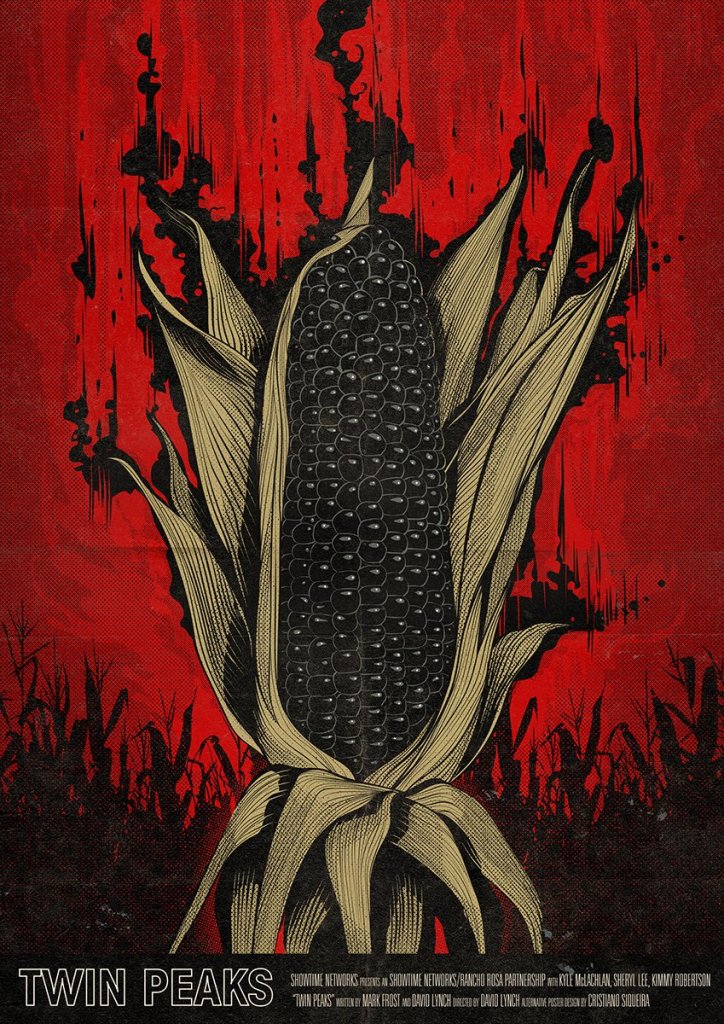
Second, Cooper has a certain «karmic connection» with Laura Palmer. Just like her, Dale Cooper is inextricably linked with the town of Twin Peaks. He was assisted from the beginning by the Fireman, the one who sent Laura Palmer’s soul to this town. Cooper wanted to move there, he felt this was his dream town. You might say that Laura is the heart of Twin Peaks and Dale is its mind. They shared dreams, appearing together in the Lodge. They meet again and again amongst the red curtains: now Laura whispers a secret into Cooper’s ear, now Cooper watches as she is carried off by angels. It seems that the whole deal with Annie was meant to strengthen the bond between Laura and Cooper — and to make her write certain words into her diary.
And now it’s Cooper who must play an important part in the destiny of Laura, who’s «I am dead, yet I live». I suppose his goal is not «saving» her in the ordinary sense of the word, much less changing the past (the latter hardly makes sense). No; he must find Laura and bring her home. And this is the objective given to him by the Fireman, not Leland. Laura is dead; yet she lives in a different reality and should be brought home — meaning not Sarah’s house but her metaphysical home, the White Lodge. This will restore the balance of power for Twin Peaks, stopping the influx of nightmares. Finding and bringing home Laura and stopping Judy: such are «two birds» Cooper wants to «kill». His dark antagonist Mr. C. wants just about the same, but «in reverse»; so he hunts for the same coordinates with just the opposite intentions, and that, in a sense, is why he’s bound to fail.
This is splendidly highlighted by his ignominious end which heavily echoes the fate of Windom Earle, also Cooper’s shade of sorts. Earle wanted absolute power, longed to enter the Black Lodge — and was instantly destroyed there by BOB for biting off more than he could chew. So much effort, so much scheming, masking, killing: all for being consumed by the hellfire.
The Doppelgänger far outclassed Earle in terms of ambition and resourcefulness: he created the mysterious glass box, he seemingly financed various research projects, he created a crime network, fabricated tulpas and brought much more evil in general. Avoiding every trap, he has found the entrance to the White Lodge; but to what end? During pure-hearted Andy’s visit to the Fireman he was shown an interesting movie and brought back with an important mission. But when the Doppelgänger made it there, he was instantly caged and thrown into the Sheriff’s Department where he was shot by Lucy of all people. The Doppelgänger’s wicked heart is unable to see the White Lodge’s light, his mind remains inside a cage of dark urges, so he went over to MIKE, to the world of nightmarish illusions where he got burnt away.
What a contrast to the real Cooper who even learned to make good out of evil during his stay in the worlds beyond! MIKE might be a lord of illusions and nightmares, a trickster and a devil, but even his powers could be used for good: so Coop asks to create new Dougie for the family in Vegas. Illusion? Yes. Deceit? Possibly. Black magic? Hardly. Then again, the ethicality of this act is for everyone to decide on their own. Just as everyone is free to decide what does the finale hold, a glimmer of hope or nothing but an inescapable horror. Yet the finale should be interpreted first; now we’ll do just that.
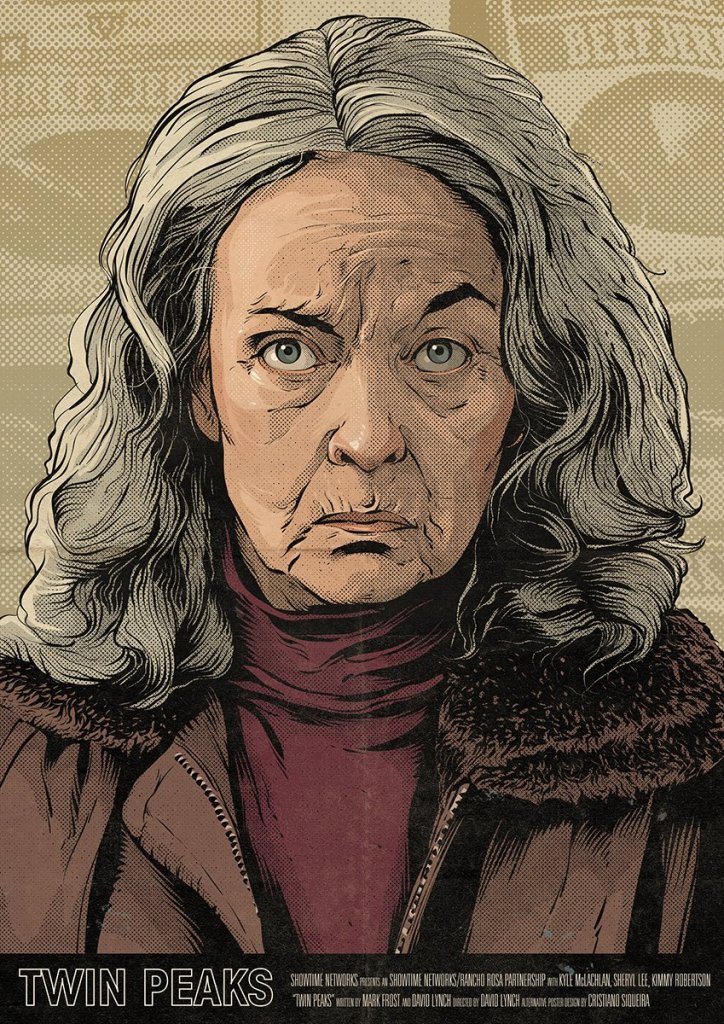
COOPER’S KATABASIS
HAWK: Blackfeet legend.
Waking souls that give life to the mind and body.
A dream soul that wanders.
COOPER: Dream souls. Where do they wander?
HAWK: Faraway places. Anywhere U.S.A. The Land of the Dead.
COOPER:Is that where Laura is?
— s01e04
In the dream, the guy Bobby shot stood up after the bullet went into his chest, and he said that death had given him sixty seconds to tell us our future.
He said, «You, with the gun … watch yourself. Those who die this way memorize the face of their killer, and tell Death about the face. Death comes looking for you. Takes your friends, or a parent. Death takes what you have allowed it to. Murder is just a way of shaking Death’s hand and telling him, “What is mine, is yours.” »
In the dream, Bobby looked at me and back to the guy he shot. The guy said, «You watch that girlfriend of yours. Someone down here is saving her a seat.»
— Laura Palmer, Secret Diary
Now there are some things that will change
— Dale Cooper, s03e17
Cooper, as befits a mythical hero of his caliber, is destined to one of the most perilous and important deeds: katabasis, descent into the Underworld. The world of the dead. He intends to find Laura, which entails entering her own Bardot, the world of her afterlife ordeals, that shadow reality where Laura is a guest and Judy — i.e. Death — is a host. In many aspects it resembles the duty of shamans who descend into the Underworld to find one of the sick or the deceased person’s souls. Cooper is a dreamer, but that doesn’t mean that «all the events of all three seasons were his dream», as some people are eager to assume. He is a man with an ability to travel through other worlds, a dreamer in the same sense shamans and mages can be called dreamers.
So we see an absolutely marvelous «curtain call» scene with all the good guys meeting in the Sheriff’s Department (Lynch comes closest to breaking the fourth wall here). «I hope I see all of you again, every one of you.», says Dale, and I think these words hold no hollow reassurance and no cunning as he really does believe success is possible. What happens next? The critical moment (2:53) is approaching, the moment when the Evil from the Blue Pine Mountain might take hold of the town. But there’s also a chance to «find Judy» at this moment; Cooper does exactly that, following the Fireman’s directions. We hear the legendary phrase: «We live inside a dream!». This is an incantation needed to embark on a dreaming journey (once uttered by Jeffries who unwillingly went to «the flipside» and understood a great deal how the world is arranged thanks to this). Almost everything we see next happens in various dreamspaces, not in the «normal world» of Twin Peaks.
Cooper is accompanied only by a pair of his dreamer colleagues: his wise mentor and comrade Gordon Cole and his loyal assistant Diane Evans who acts now as a companion guide on his journey through illusory realms (it’s no accident that her hair and nails are in the colors of Black Lodge). They enter a shadow version of the Great Northern; for the record, in the original version of the second season’s finale Cooper was meant to follow Earle to the Black Lodge in the same manner. Friends stay, becoming a covering party of sorts; Cooper enters the metal door in the basement (note how rich the scene is with symbols: the basement, a classic symbol of the unconsciousness; the key that cannot be used to enter the actual room that nevertheless acts as an anchor, helping Cooper find the way).
On the other side of the door he’s greeted, naturally, by sarcastic and cunning MIKE who inimitably chants the «Fire Walk with Me» poem, the mantra of a magician who knows that both worlds are dreams or illusions sprung from the mind and both worlds are equally real. MIKE ushers Cooper towards the space between the world of the living and the world of the dead, the Convenience Store. We also see the wily Jumping Man running down the stairs.
Next is the scene where Cooper talks with Jeffries: like a quarter of a century ago, they meet under most unusual circumstances, but this time they are quite able to recognize and understand each other. Jeffries shows Cooper number eight, the Mobius strip, which is also an infinity symbol, which is also a deformed symbol of the Owl Cave, a symbol of two worlds, our world and its shadow world. Cooper mentions the date of Laura’s death; Jeffries says that’s where he finds Judy and warns him of a danger by telling «It’s slippery in here!» Yeah, and he also tells him to say hello to Gordon: ergo, he also hopes his colleague succeeds.
Then Cooper travels with Jeffries” assistance; where to? To the moment of Laura’s death. Not to her physical past, but rather her carmic past, to the frozen moment of her personal demise, the moment of her meeting with Death and her vanishing. All of this is shown to us in monochrome; Cooper accompanies Laura «home», he must bring her soul back from Judy’s reality. Not by rewriting history: that is both meaningless and impossible. More like by monitoring the journey of Laura’s soul through afterlife. This interpretation has more in common with shamanistic or Buddhist outlook concerning afterlife experiences than with popular sci-fi tropes that belong to The Butterly Effect or Back to the Future. What might be confusing is «Pete Martell’s lucky fishing» thing, with both the body vanishing from the shore and the events unfolding differently. I tend to think it’s a «what if», one of the possibilities that are kept at our convenience store; a possibility made inaccessible to everyone, burnt out on 23 February 1989.
So we see how Sarah Palmer, mad with despair, smashes Laura’s portrait (greetings, Jumping Man) in the unchanged future, the only future that’s real. Laura screams, like she screamed in the moment of her death, and vanishes. This scene surely brings the story of Orpheus to mind, except it seems Cooper did everything right. He doesn’t bring Laura back from the Underworld, conversely, he traces her path to the Underworld. The past dictates the future, so he browses Laura’s personal past to find her.
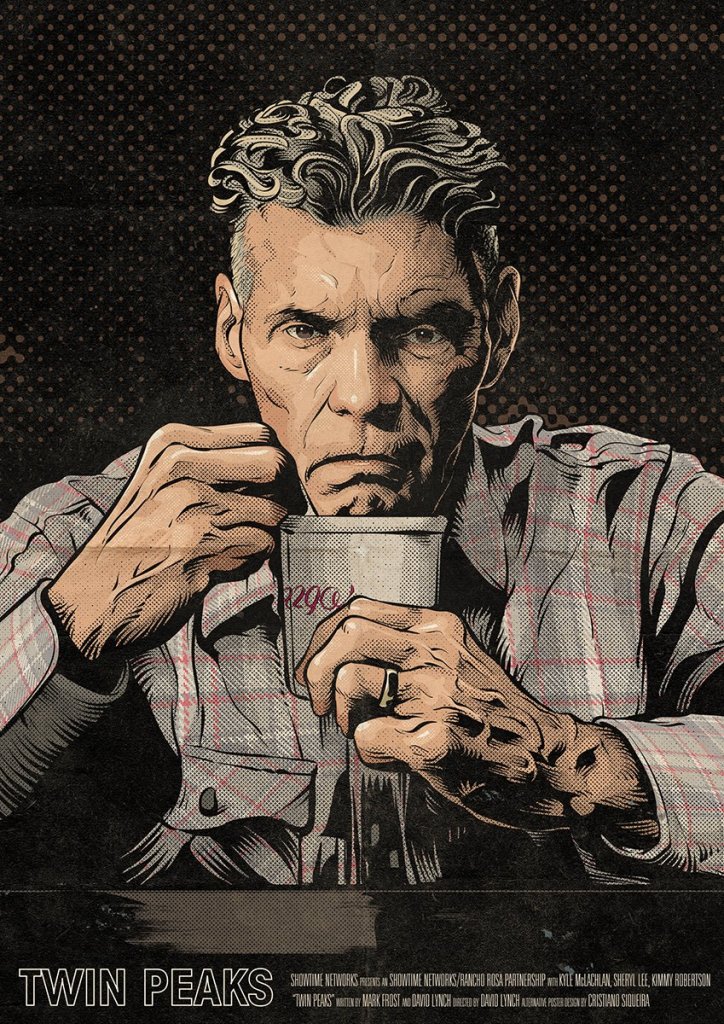
And he gains some sort of knowledge, «gets a fix» on Laura’s location, gains entrance to her personal postmortal nightmare. Then Cooper walks again through the corridors of the Black Lodge, this time leaving it via the familiar 12 sycamore circle; it seems that he travels not to the «real» Twin Peaks but its «tilted», «living-in-a-dream» version. Note the way Diane is dressed, note their mutual «identification» («Is that you? Is that really you?») They are about to embark on a grave and dreadful journey; and they both know everything might become different after the transition. Following the Fireman’s directions, they drive 430 miles to the electricity pylons (this place is an enhanced version of the poles with number 6 on them) and travel to the flip side. The transition is stabilized by creepy ritual sex act in the hotel; it somehow helps to focus for travelling through the shadow realm. Cooper succeeds at keeping his own personality intact, Diane, it appears, gets quickly swept away. In any case, Cooper starts his quest alone.
«Odessa» is neither an alternate timeline, nor a parallel universe; it’s an Underworld, just like The Dutchman’s Lodge motel accessible via the convenience store. There’s not a soul outside. Literally no one’s there, except for the staff and the diners inside «Eat at Judy’s» that behave strangely to say the least: for instance, they roll on the floor for a while and rise as if nothing has happened after being shot by Cooper. Cooper struggles to maintain focus as if it were a lucid dream where you can forget yourself and start «living in a dream». The uncanny scene with pistols being dunked in oil perfectly illustrates this point. Dale finally finds Laura who does not remember herself and lives under the name of Carrie Page. He wants to drive her home but doesn’t exactly imagine how it should be done, where to drive her. To the White Lodge? Or to her actual house? He may have some clever plan, though…
There’s a pendant on Carrie Page’s neck depicting an upside down horseshoe or a crescent moon: that’s one of sinister symbols of Judy similar to the one on Hawk’s card. There is a white horse figurine in Laura-Carrie’s house. There’s also a dead body frozen in the air but both Carrie and FBI agent Cooper pay no attention to that. As they travel to Twin Peaks (across the country by car, no less), they encounter an automobile that follows their car for a while but suddenly pulls out: and don’t know about you but I felt an extreme anxiety, paranoia, ghastly stalker vibe during this scene. Nevertheless, Dale-Richard drives Laura-Carrie to Twin Peaks; naturally, the town is empty and the RR diner is closed. A knock on the door of the Palmer house is the climax.
In an unsettling revelatory moment (it’s more of a revelation for the observant viewers that are well versed with the series” mythology than for the characters) we are told that this house was formerly owned by Chalfonts and now is owned by Tremonds. Do us, the viewers, need any more hints at this reality’s nature? These names are familiar for Cooper, of course, despite him exerting a tremendous willpower to maintain his memory and personality in that world. So he asks: what year is it? Then comes the moment of Laura’s realization; she hears the voice, she understands everything and lets out a horrified scream. And the lights go out in the Palmer house. The last thing we see, watching credits, is that Cooper and Laura are in the Black Lodge and she’s whispering something in his ear once again.
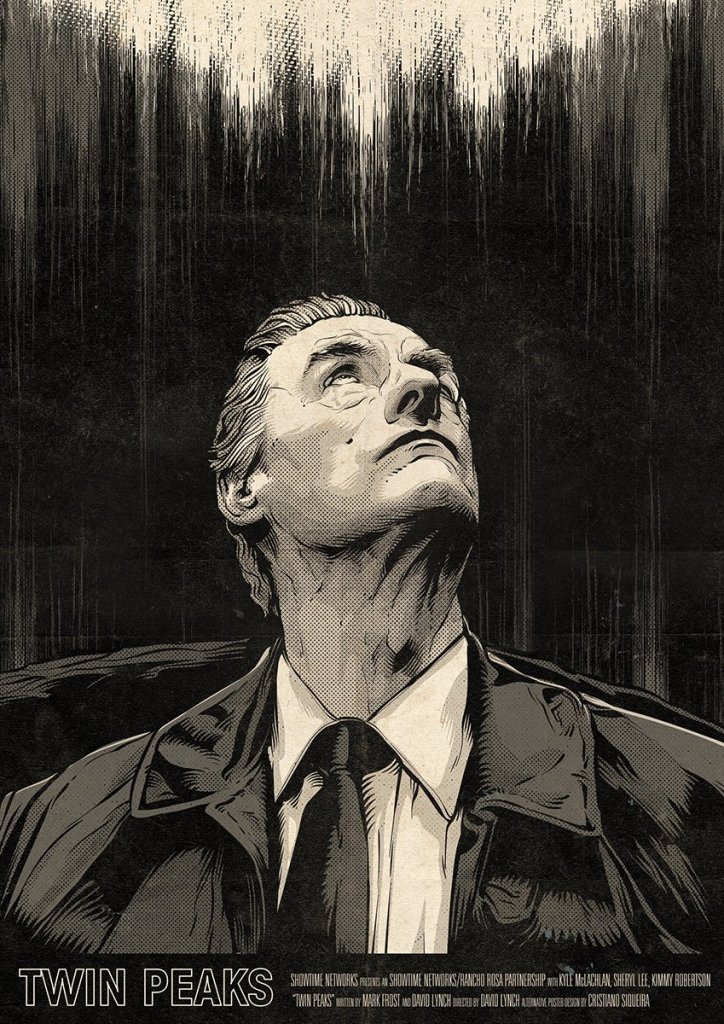
HOPEY END (?)
I’ll see you at the curtain call!
— Dale Cooper, s03e17
One for the grandkids!
— Rodney Mitchum, s03e17
So what’s the result: a total hopelessness? Are Dale Cooper and Laura Palmer doomed to meander through postmortal visions and hellish red curtain corridors? Or one can hope Coop did help Laura and the «symbolic soul» of the town of Twin Peaks went home, to the White Lodge, and its life will return to normal? Lynch and Frost do not give us a definite answer, leaving the finale open-ended and allowing everyone to interpret it as they see fit. I personally think that the finale is optimistic.
We were shown a classic happy ending in the 17th episode. BOB is defeated, the Doppelgänger went back to the Lodge, Coop got to hang out with his old friends, even if for a little while, without a chance to drink a cup of coffee. We do realize the scope of the horrible events that have already transpired in Twin Peaks: Bobby and Shelley are in for a dark time since their daughter Becky might be dead; the future won’t be sweet for Ben Horne and his kin… Yet Dale did everything he could on this side so no one is left aggrieved. And as the hands of the clock are frozen at 2:53, what can you tell? What if in a mere second Cooper returns from his descent to the Underworld and reunites with his friends? What if the lightful FWWM finale with Laura carried away by angels is a metaphysical conclusion of the whole story that follows the finale of the third season — as there should be a reason the Fireman shows Andy the same angels among other things? Maybe Laura realized her own nature, that being a clear light, and went back home? There are many options.
It is worth noting that David Lynch, at least as a filmmaker, does not praise hopelessness. If any of his movies might qualify for the overwhelming implementation of the never-ending cycle of death and rebirth, this would obviously be «Lost Highway». Yet regarding this movie Lynch once said: Fred/Pete did get caught in a carmic loop, but he’s not necessarily stuck within in forever.
«It’s a fragment of the story. It’s not so much a circle as like a spiral that comes around, the next loop a little bit higher than the one that precedes it.» Mulholland Drive finale isn’t unambiguously sombre, too (the same might be also said about the most popular interpretation of this movie); and the Inland Empire ends with a very luminous catharsis. That is what we see, so to speak, at the narrative level. What’s worth considering here is: for what purpose did Lynch and Frost make the third season? At any rate, what did it become for David Lynch, a man in his eighties who has buried a lot of his close friends during past few years, many of them killed by accursed cancer (remember those dedications to the deceased half of the episodes)? What did he wish to tell us in the first place?
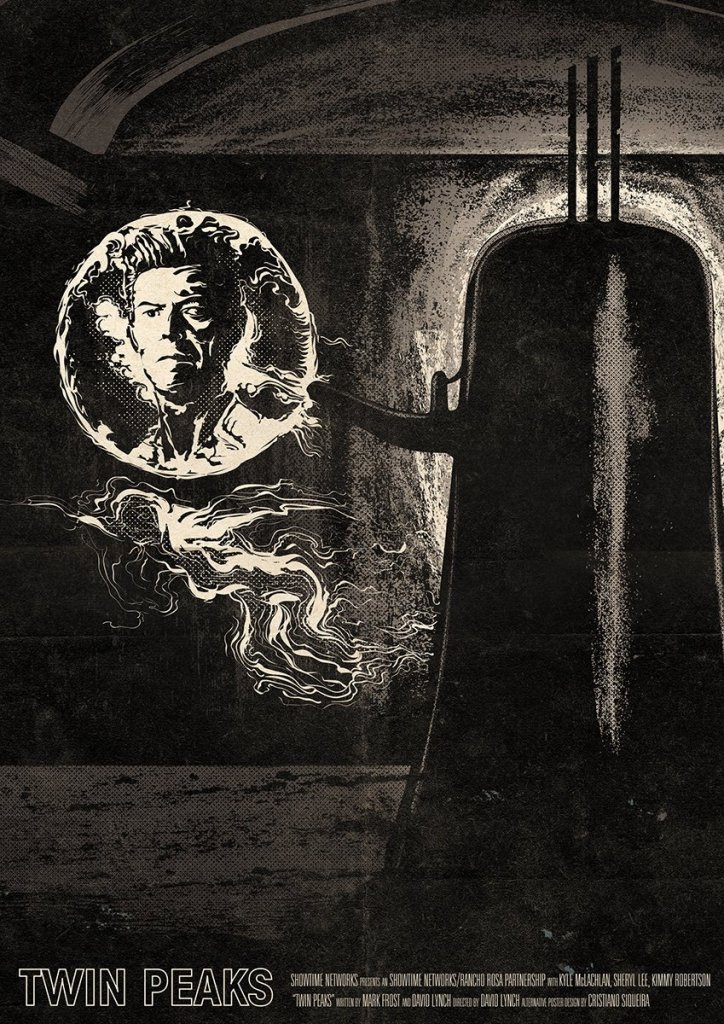
Many people have sensed, of course, (as it’s hard not to) that the third season is first and foremost a story about time, ageing and death. Lynch examines the destructive effect of Time in varying aspects, from different perspectives, at different angles, giving no quarter to both characters and the audience. He places emphasis on the years that passed, he shows how our mistakes follow us to the end of our days, how children repeat the mistakes of their parents, he shows the decay of once lovable town, the perpetuation of the cycle of violence, drug addiction, malignant delusions, murders and abuse.
Yes, in this regard the creators are merciless, not taking compromises. But we should not forget that David Lynch is a great artist, and, judging by various interviews, a man with a great and kind heart. And it’s not that hard to see in his (likely farewell) creation an attempt to bring us not consolation, but a deep, metaphysical hope and meaning. Like a guerilla fighter throwing his last grenade, he strives to overcome evil by fully employing his talent, by mustering his favourite actors, putting together his paintings, works of artists precious to him, the music: everything he deems important and genuine.
Yes, Death, Enthropy, Judy is an extreme destructive force that devours all. But there are extreme creative forces: Love, Understanding, Imagination, Beauty. And the actors who have died stay forever alive on the screen: that’s why Lynch is so determined to avoid recasting, that’s why David Bowie can be replaced by a surrealistic device but not another actor, and BOB is meant to be played by Frank Silva, and even the incidental characters like Donna’s younger sister or that giggly German girl should stay the same as they were. The bond must not be broken, the world created by Lynch and Frost’s imaginations must stay alive. It’s also a way to say goodbye, pay last respects to friends, leaving them not in the depths of oblivion but in the eternity’s radiant light.
So Gordon worries about aged Albert (and we know we won’t ever see Albert in the new footage) but Albert stays alive, and Gordon himself stays young at heart — and there’s a worthy successor, beautiful Tammy, in the Blue Rose team. And Margaret Lanterman whose memory one of the episodes is dedicated to reminds us before departing that death is just a transition, though there is some fear in letting go.
And if agent Cooper was able to make it out of the abyssal red curtain illusions, surely he would be able to make it out of Judy’s devastating illusion? By the way, many people have noticed that the «shadow reality» seen in the 18th episode resembles our mundane life a lot more than the reality of Twin Peaks: here we see a lot of familiar brands, general dullness and bleakness… This being so, that seems a harsh diagnosis Lynch makes concerning our world which regretfully lacks understanding, imagination and love.
On the other hand, as everуone must have been noticed, Lynch tries to erase the border between the movie world and so-called reality, as if making the impossible by his pulling miraculous universe into ours. And as we take into account that the story (both on the screen and in real life) spans over a quarter of a century, bearing in mind its enormous fanbase and the most powerful medium used, it turns out to be a genuine modern collective magic ritual: the Psychick TV meant to change the world in some way. I personally can say Summer of 2017 was accompanied by such torrent of synchronicities and odd terrifying phenomena that came at some points with a peculiar cracking and sparking for me that it’s easy to believe this magical hypersigil has started to make an impact.
Will we be able to get out of the entropic desolation, will we find the path leading, if not to the White Lodge, then to the homelike and wonderful town, even if it will exist nowhere else but within us? It seems that Lynch has found that path long ago and now reminds us of it. So even if agent Cooper has made some mistake, well, only the one who takes no steps does not stumble. And without such daring dreamers as Dale Cooper (and David Lynch himself) we’re doomed. But we’re not gonna talk about Judy anymore. Let’s drink to the Bureau.
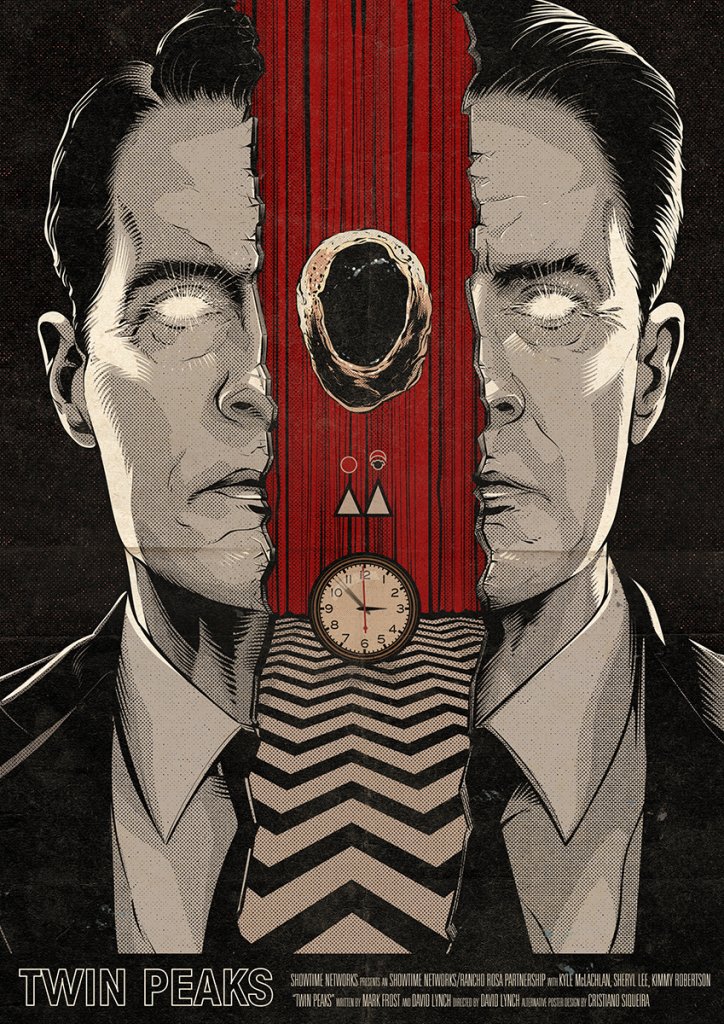
EPILOGUE
Let’s go back to starting positions. It’s really more comfortable
— Cooper’s Doppelgänger, s03e13
The world is as you are.
— David Lynch
Well, this was the only correct interpretation of Twin Peaks, approved and certified by Agent Phillip Jeffries himself. Just kidding, of course. This is just my humble and subjective attempt to interpret this great work of art.
So did we explain everything down to the tiniest details? Of course not: there is a lot left to ponder — and those who hope for the fourth season might expect a continuation of some plotlines. I left out many issues: what exactly was a space where Diane-Naido dwelt, who is the American girl giving Coop a warning about her mother, who hid the pages from Laura’s diary in the toilet door, how did the Doppelgänger make the glass box, how did Dougie’s ring end up in Major Briggs” stomach and what was that strange box lying there in Buenos Aires. It’s easy to come up with a plausible answer to the last question, though; it almost certainly is Phillip Jeffries” fancy tulpaphone he uses to make calls to the world of the living from his otherwordly abode.
The situations with Red or Audrey also were left unclear… But I think these are the details that aren’t really important in the grand scheme of things. The important thing is that it is possible to find an interesting interpretation that does not entail utilizing popular sci-fi tropes (as David Lynch isn’t really fond of sci-fi), let alone stating that «all of this was a pipe dream» or «gramps is messing with us/gramps went mad»: an interpretation that elucidates many of the artistic solutions and the authors” intent.
Whatever the case, my perspective obviously should not be held as the single possible, much less as the single possible «truth». Lynch himself would probably just smile and shrug upon looking through all of this. And if a new season comes out, everything might turn out to be not what it seemed. So, if everything said above appears far-fetched, questionable and unfruitful to you, just get back to where it started and devise your own story explaining all the whats and whys. But in any case, please do not swear at the binoculars too much.
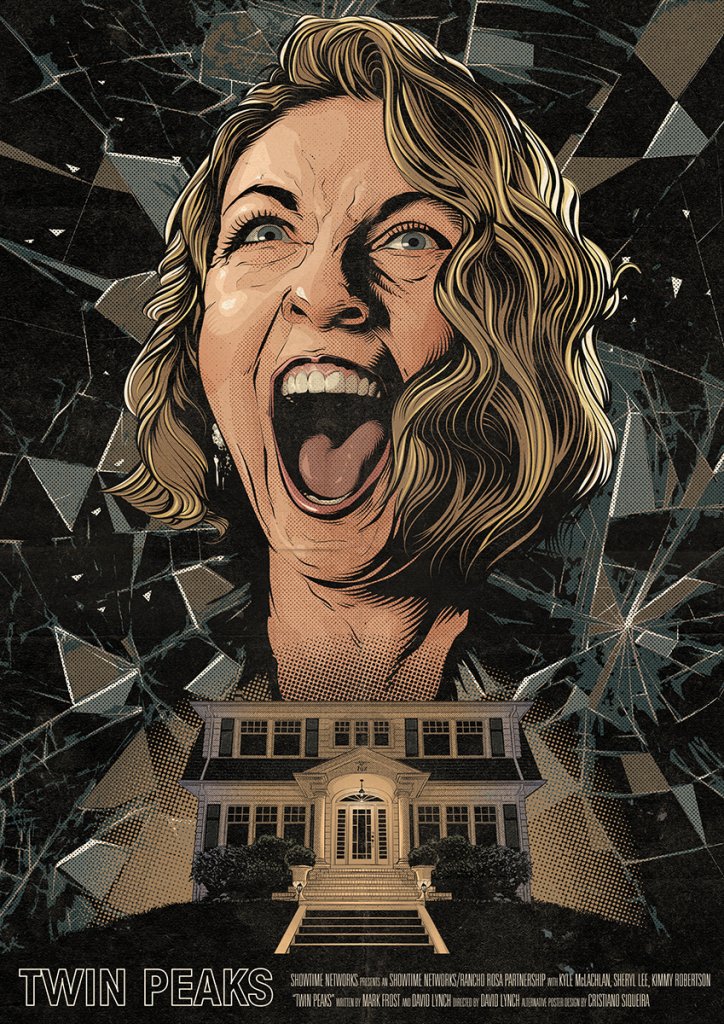
There’s one more thing I want to mention. Even when we take all the Americanness of both Lynch and his extravagant movies, especially Twin Peaks, into account, it’s surprisingly easy to find deep parallels with a certain cultural phenomena known to Russian audience. And I’m not even talking of the fabled chthonicness of Russia or «absurdity of being» pervading our lives. It suffices to pay attention to the literature.
For example, there is a famous Russian writer with a vast roster of books devoted to just about the same themes, I think, as the most «weird» works of Lynch: the sphere of perception, journey of the soul, the illusory world, Buddhist philosophy. This author get blamed for the same things as Lynch in the same terms: «what was he smoking», «Postmodern rubbish», «outrageous mockery» and so on. I am talking about Victor Pelevin, of course. Those wishing to look into this subject are free to check out his novels and discover many parallels with the third season. For instance, something similar to the Black and White Lodges could be found in Buddha’s Little Finger; and in Batman Apollo we get almost the same cosmology with «diving into death», tulpas, split individualities, factories of cosmic suffering and so on.
There is also a parallel with Russian poetry I find even more interesting. In fact, the third season of Twin Peaks might be perceived as a cinematic poem, and it would probably be the most proper course to take. And if we wish to find its closest analogues among the works of the famous wordsmiths, whom we should remember first? I believe the closest to Lynch’s creation in terms of semantics and expressive means are OBERIU poets of the early 20th century, namely Daniil Kharms and his literary doppelgänger Alexander Vvedensky, an «authority on the absurd» who claimed to be interested by three themes: Time, Death, God.
I won’t go into details, as this subject calls for a separate large essay. I’ll just cite a poem which is remarkably consonant with Lynch’s masterpiece. It’s written in the early 1930s. This brilliant poem by Kharms sounds like a portrayal of Laura’s fate, and every time I read it I see Dale Cooper and Laura Palmer among the red curtains and angels carrying her soul into the eternal light:
Daniil Kharms
A FEMALE FRIEND
Friend, upon your facial surface
Two wood-fetters traced their way,
Leaving hundred and two circles,
Number seven, letter Kay.
Soaring seasons pass you idly,
Key-cold lips got tinged with green,
Cruel weather popped your eyeball,
Nostrils ring with chilling wind.
Workings of your soul are hidden
From my mind. Yet it might snap,
Crack and open, all unbidden,
Coffer where your thoughts are kept.
Meaning of your dulcet dreaming
Will be known to all the rest.
And your gaslike spirit-steaming
Will then whirl out of your chest.
Do you wait for tangling planets,
Stars embroiled in cosmic brawl?
Or for mangling fateful tenets —
With your hand against the pole?
For a zeal that just like blossoms
Falls from skies into your reach
And a breath inside your bosom
To convert your thoughts to speech?
We don’t take our days for spending,
We don’t switch into full gear;
Yet our minutes keep extending,
Elongating, year by year.
Greed and ire every hour
Circle us with their bleak embrace;
Fatuity, long since sour,
Goes and turns to us its gaze.
So we’ll tune ourselves a lyre,
Hear it ding and start to sing,
For the whole world to admire
All the dreaming it would bring,
All the rivers running wildly;
And from banks that tower high
You, both eyelids opened widely,
As the ages keep marching by,
Will with eye by coldness halted
Watch our glory every day.
And upon your brow exalted
Shade will never ever lay.
Text: Ibsorath
English translation:
Dali Lama XXIII
All pictures by
Cristiano Siqueira
(aka @crisvector)
* * *
Note by author:
At the end of the Russian version of this article, not one, but two poems are cited: the «Female Friend» by Kharms, and the «Meaning of the Sea» by Alexander Vvedensky. Unfortunately, neither the author nor the translator of the article could find or create adequate poetic translation of Vvedensky’s poem into English. Nevertheless, those who interested can easily find the interlinear word-by-word English translation of “The Meaning of the Sea” on the Web and see how much the images of the poem echo the Twin Peaks eerie mythopoetic universe.
Дорогой читатель! Если ты обнаружил в тексте ошибку – то помоги нам её осознать и исправить, выделив её и нажав Ctrl+Enter.
Spelling error report
The following text will be sent to our editors: